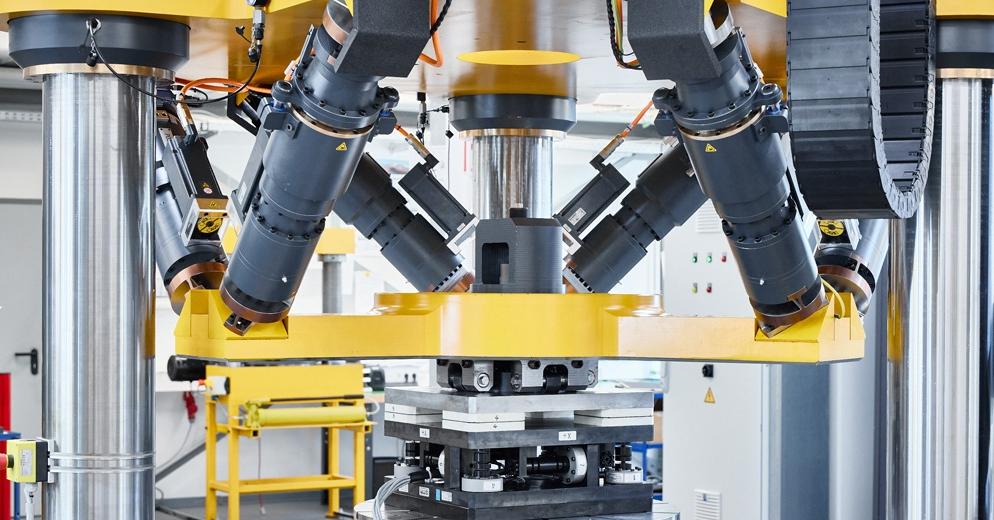Do you run a business related to metal manufacturing or work with metal, or are you engaged in this field? If you answered yes to any of these questions, then this article is for you. Our discussion will be focused on something that may simplify your metal manufacturing process in the future, as well as enhance it in many ways.
In this case, we talk about UTM – Universal Testing Machine. It is a type of machine that is capable of performing numerous types of tests on different types of metal materials. Let’s take a closer look at this type of equipment in order to understand better how it can improve your work with metals.
Overview of the Universal Testing Machine
The Universal Testing Machine (UTM), also known as the universal tester, material testing machine, or materials test frame, is an essential tool in the field of materials science and engineering. The machines test the mechanical properties of tensile, compressive, bending, and shear-strength materials. To achieve this goal, UTMs apply a controlled load to a specimen and measure its response, offering critical insights for material design and quality control.
Universal Testing Machine has two main components: the loading frame and the control panel. Usually, the specimen is loaded with force using one or two supports, which are constructed from steel or aluminum. It features an upper crosshead for clamping the specimen, a lower, movable crosshead for height adjustment, and an elongation scale to measure the relative motion of the upper and lower tables. Featuring components such as a hydraulic power unit, a load measuring unit, and control devices, the control panel sets the test parameters and records the results. As a result of this setup, precise load applications can be carried out and reliable test results can be recorded.
UTMs are versatile machines capable of performing a wide range of tests on different materials. Tests include tensile, compression, bending, shear, adhesion, pull-out, and hysteresis. They are used in many fields, including materials science, quality control, manufacturing, automotive, and construction, to test materials like concrete, steel, cables, springs, steel wires, chains, slings, and ropes.
The Role of UTMs in Metal Manufacturing
The metal industry relies heavily on Universal Testing Machines for quality control and product development. Metals and alloys are evaluated using these machines for their tensile strength, compressive strength, bending strength, and shear strength. Testing determines if a product, component, or material is functional and safe under different loading conditions.
UTMs can test a wide array of metals and alloys. As a result of these tests, the final products are guaranteed to meet the necessary specifications and standards. Whenever a component fails due to material inadequacy, it can result in recalls, lawsuits, or even life-threatening consequences.
By integrating UTMs into the metal manufacturing process, efficiency and quality control can be significantly increased. Universal Testing Machine manufacturers often offer customized solutions and services to optimize testing processes. A customized machine will be able to meet the specific needs of the manufacturing process, resulting in a more efficient testing procedure. Further, advances in UTM technology have made these tests more accurate and less labor-intensive through automation and optical strain measurement. By automating UTM systems, operators can focus on other tasks, thereby increasing lab productivity.
Benefits of Integrating UTMs into Manufacturing Processes
The integration of Universal Testing Machines into manufacturing processes, specifically in metal manufacturing, offers several benefits, including enhanced reliability, quality control, and cost-effectiveness.
Increasing the reliability of products is one of the key benefits of UTMs. Materials and components are rigorously tested under different conditions by UTMs to ensure that they meet the required standards and specifications. UTMs reduce the risk of defective products leaving the factory, thus protecting both consumers and manufacturers.
UTM is heavily used in quality control. During product development, these tools provide engineers with critical data to make informed decisions. Measurements of force and distance help quantify the quality of materials, components, and assemblies. UTMs are vital tools in various industries because they can be customized to specific quality objectives.
Manufacturing processes are also cost-effective when UTMs are integrated. Automation in materials testing has been particularly impactful with Universal Testing Machines. By automating testing processes, repeatable test methods can be created, operators can be involved in the process less, and more and better data can be collected. As a result, resources are used more efficiently, labor costs are reduced, and problems can be identified and addressed more quickly. Additionally, automated UTMs enable batch processing and more efficient testing cycles, which can increase throughput.
Advancing Metal Manufacturing Excellence with UTM Integration
Do not hesitate to consult with reputable companies that can address all your concerns if you are considering adding a Universal Testing Machine to your metal manufacturing operations. As well as providing you with the necessary tools for working with metal, these companies also offer comprehensive services, including maintenance, repairs, and warranties. Working with such firms can ensure that your metal fabrication processes are performed at the highest level, elevating your standard and efficiency.
UTMs present a valuable opportunity for businesses in metal manufacturing. It’s more than just buying a machine. It’s about obtaining a complete solution that increases your production capabilities. Universal Testing Machine options can be customized to meet your specific needs, with ongoing support and service available from reliable companies in this field. The UTM will not only perform optimally but also integrate smoothly with your existing processes to maximize its value.
